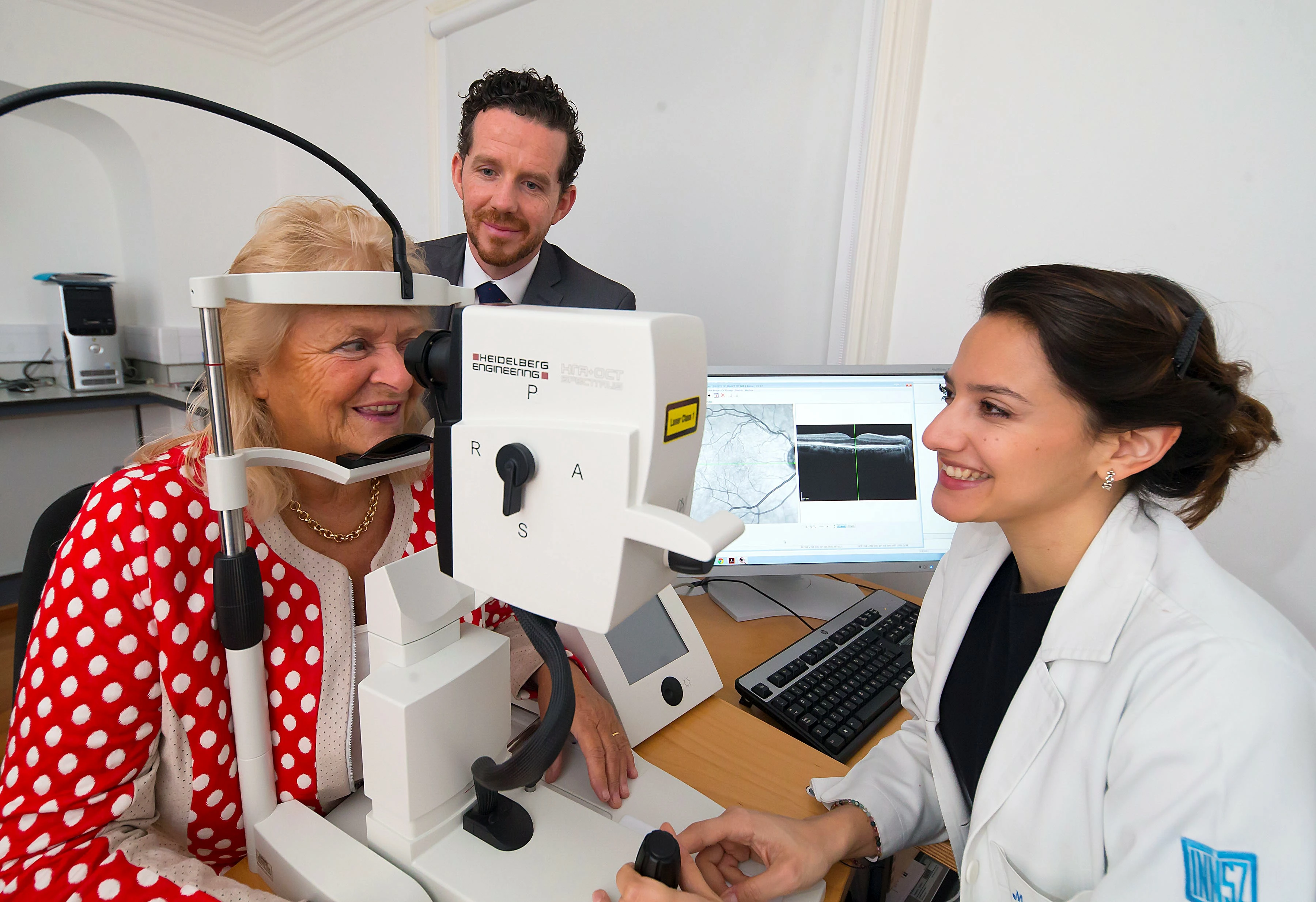
Partner Article
Hope in sight for UK’s 600,000 AMD sufferers
New research reveals dietary supplements can lead to vision improvement for sufferers of the most common cause of sight loss
Results from a two-year eye health study - the first of its kind in the world – have shown a new hope for people suffering from age-related macular degeneration (AMD), the most common cause of sight loss in the UK.
The ground-breaking European Research Council-funded programme, involved over 100 people diagnosed with the early stages of dry AMD and revealed a major improvement in the vision of 40% of trial participants taking a dietary supplement of carotenoids.
Currently incurable and largely untreatable, AMD affects more than 600,000 people in the UK and is increasingly common in those aged over 60. Another 200 are diagnosed every day and the number of those affected nationwide is set to more than double by 2050.
During the trial, conducted by a team from the Nutrition Research Centre Ireland (NRCI), the volunteers taking part received supplementary meso-zeaxanthin, zeaxanthin and lutein, the three carotenoids that make up macular pigment, plus co-nutrients (vitamin C, vitamin E, zinc, and copper). Carotenoids are naturally-occurring pigments that give many fruit and vegetables their colour.
Those living with AMD would usually have been expected to experience a continued deterioration in their vision over the two years of the clinical trial. Instead, those receiving carotenoids showed a significant improvement across 24 out of 32 tests of vision. Most patients showed an improvement in their sight, with 40% of trial participants displaying what is deemed to be a clinically meaningful improvement in their vision after 24 months. Improvements in vision were particularly marked among those receiving all three carotenoids, including meso-zeaxanthin, compared to those receiving only zeaxanthin and lutein.
The trial – called CREST (Central Retinal Enrichment Supplementation Trial) AMD – was conducted at Waterford Institute of Technology (WIT) by KwadwoOwusu Akuffo; Stephen Beatty; Jim Stack; David Kelly; Laura Corcoran and John Nolan from NRCI along with Irene Leung, University College London Institute of Ophthalmology, Tunde Peto, Queen’s University Belfast; and Jim Stringham, University of Georgia, USA. Results from the study are published in Investigative Ophthalmology & Visual Science (IOVS), the most respected, peer-reviewed journal in eye science.
Prof John Nolan who co-founded the NRCI and the original Macular Pigment Research Group in Waterford and who is now Howard Chair of Human Nutrition at WIT, said: “These are hugely exciting findings and build on previous work that has been done at our Centre and elsewhere. AMD and the impaired vision that comes with it are a huge burden for patients and their families. The disease also brings a considerable economic burden, especially in its later stages – it currently costs the NHS an estimated £1.6 billion. So, there’s a huge prize in finding an early intervention that can avert the need for expensive therapies and supports.
“These findings are the culmination of a tremendous body of work by a diverse group of committed people going back over several years while we also owe a huge debt of gratitude to the volunteers who participated in the trials without any guarantee of a favourable outcome. It’s been both humbling and rewarding to work with these people and to see the difference in their quality-of-life as the decline in their vision is arrested and they begin to notice a distinct improvement.
“The team involved also appreciate the support we have consistently received from Waterford Institute of Technology, and the Howard Foundation, UK, and a range of funding agencies including the prestigious European Research Council (ERC) who funded this project in 2011.”
This was posted in Bdaily's Members' News section by Nutrition Research Centre Ireland .
Enjoy the read? Get Bdaily delivered.
Sign up to receive our popular morning National email for free.








 Restoring confidence for the economic road ahead
Restoring confidence for the economic road ahead
 Ready to scale? Buy-and-build offers opportunity
Ready to scale? Buy-and-build offers opportunity
 When will our regional economy grow?
When will our regional economy grow?
 Creating a thriving North East construction sector
Creating a thriving North East construction sector
 Why investors are still backing the North East
Why investors are still backing the North East
 Time to stop risking Britain’s family businesses
Time to stop risking Britain’s family businesses
 A year of growth, collaboration and impact
A year of growth, collaboration and impact
 2000 reasons for North East business positivity
2000 reasons for North East business positivity
 How to make your growth strategy deliver in 2026
How to make your growth strategy deliver in 2026
 Powering a new wave of regional screen indies
Powering a new wave of regional screen indies
 A new year and a new outlook for property scene
A new year and a new outlook for property scene
 Zero per cent - but maximum brand exposure
Zero per cent - but maximum brand exposure